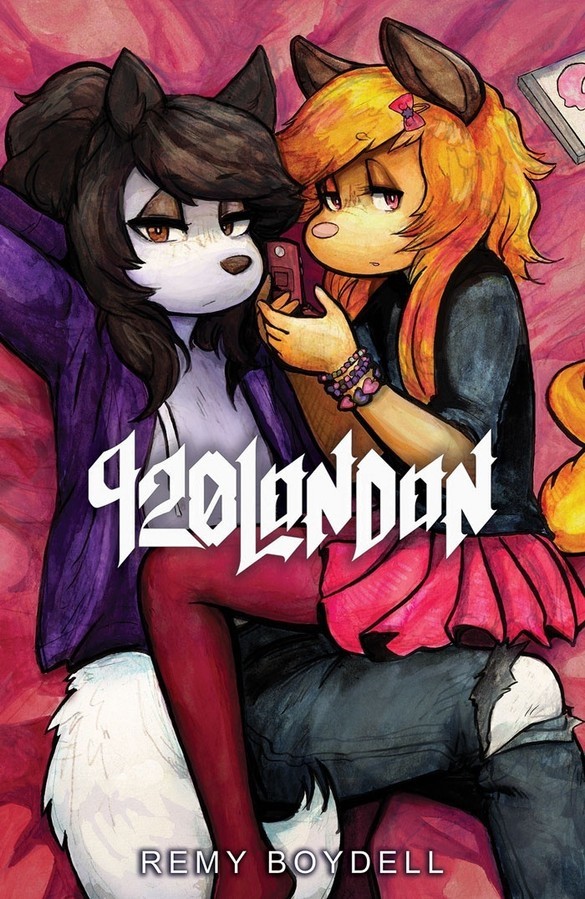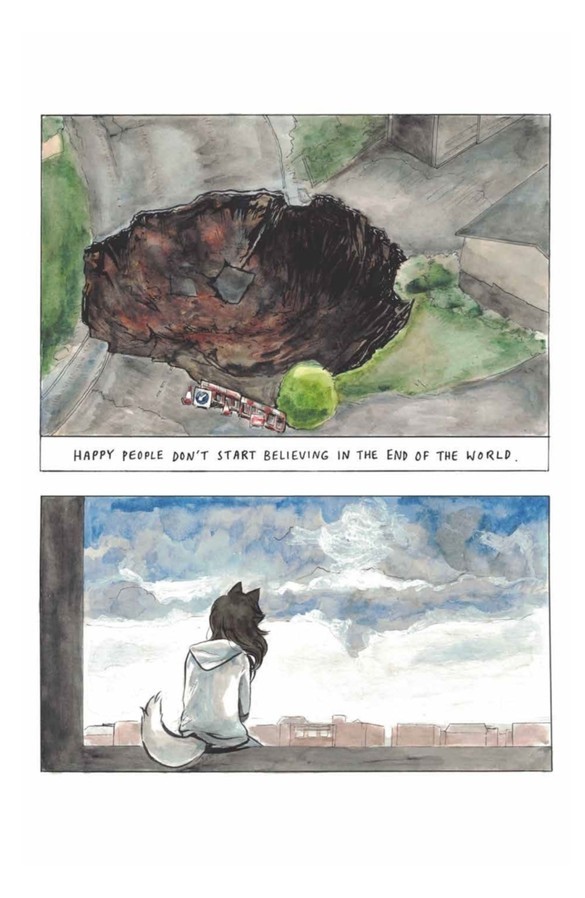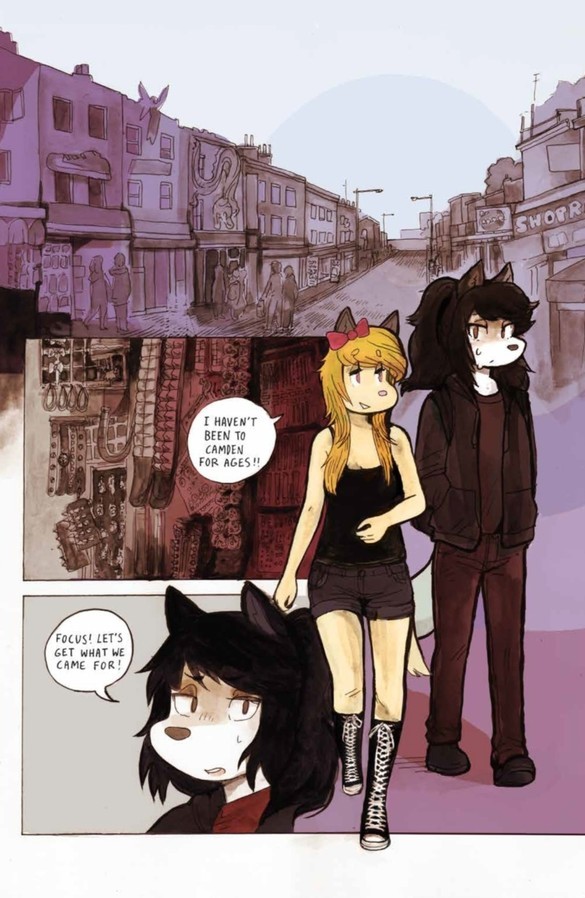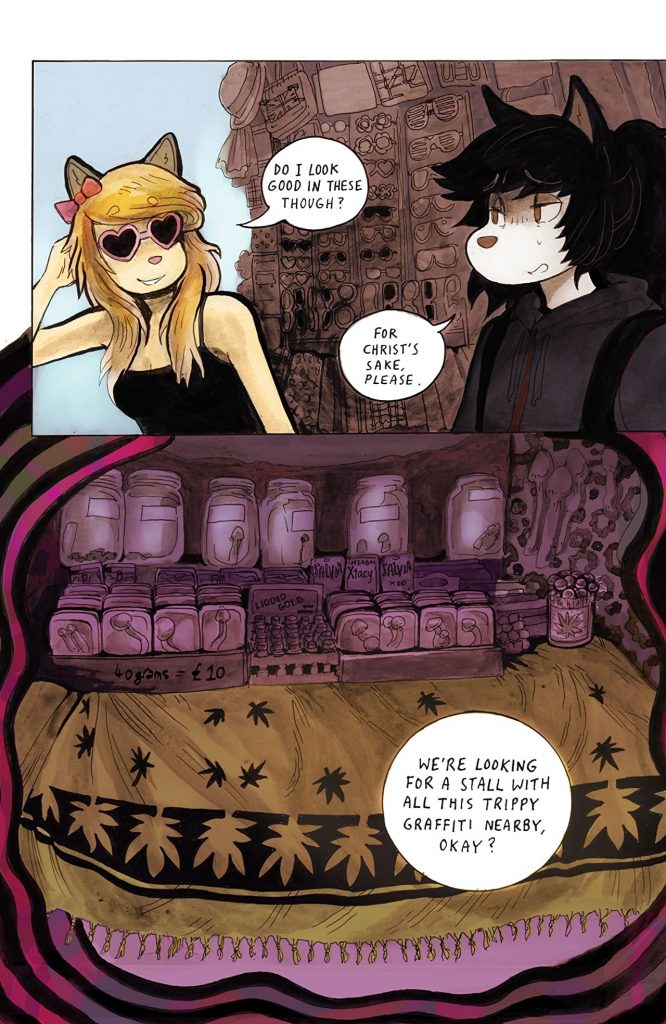
The dictionary tells me that “serendipity” is defined as: “the occurrence and development of events by chance in a happy or beneficial way,” but I think I’m ready to take exception to that — and as proof, I offer British cartoonist Remy Bodell’s new Image Comics-published graphic novel, 920London, which may just be the perfect read for these socially distanced, often even outright isolated, times. There’s no way this could have been planned from the outset, of course — Boydell was working on it well before anyone knew what COVID-19 even was. Perhaps even more uncannily, the story is set in 2005 — and yet none of this matters a whit in the overall scheme of things: it’s the right book at the right time, regardless.
Here’s the thing, though: there’s nothing about the current world situation, or the situation depicted in the book, that’s in any way happy. And yet its thematic resonance with the here-and-now still feels like serendipity in action. Go figure. As I said, I might have to drop Merriam Webster’s a line.

As was the case with Boydell’s earlier book The Pervert (a collaboration with writer Michelle Perez), the characters herein are anthropomorphic animals, but it’s not protagonists Kiki and Hana who are the “stars” of the show here — no, that honor belongs to Bydell’s gorgeous and enthralling watercolor art, which is charged with doing most of the storytelling on this emotional journey, and lends to the entire proceedings the feeling of a “tone poem” rendered in lush and resonant hues. This is both by design and necessity — the dialogue is minimalist, but even that can sometimes seem downright superfluous — and it’s exciting to see someone of Boydell’s talents recognizing their strengths as an artist and leaning into them wholeheartedly and with such confidence.
As such, what we know for certain is that in 920London this young couple is in rough financial straits and living well outside their native London due to schooling obligations, which leads to both of them feeling isolated from the lives, even the world, that they knew — and it probably doesn’t help matters that one of them has an ex that is well on their way to becoming a star in the “emo” music scene. Needless to say, the strain of all these circumstances is having negative consequences on their relationship, and they’re basically just two roommates who love each other at this point. Both of them are rather fully aware that once school is done, so are they, but neither of them is certain what will come next. Trapped somewhere between going through the motions and trying to hold on to something that’s fading by their fingernails, what are a couple of cash-strapped kids to do while they run out the clock on their doomed romance? Well, in Remy Bodell’s imagining, they could always try their hand at getting into the psychedelic mushroom-growing business!

And so they do. But there’s a larger concern than simply navigating the confused and confusing UK drug laws: you see, the apocalypse seems to be coming, as well, and not just in a metaphorical sense. No, Boydell’s end of the world scenario really is an end of the world scenario on a “macro” level, although the details of it are deliberately and tantalizingly oblique. Zombies are mentioned so frequently that one could reasonably infer they must have something to do with it, but given as they’re never shown, and are mainly referenced in the abstract, it’s impossible to say for certain. But then, uncertainty is at the core of this work, and what one does in the face of it is something Boydell never takes the easy way out by actually answering. Rather, their concern is more with exploring how that uncertainty, coupled with a profound sense of loneliness and isolation, feels like, and if that makes this an “emo” comic, then so be it. Stated plainly, the landscape of emotional uncertainty has seldom been explored more thoroughly and completely. Every reaction to it, from putting on a brave and happy face to giving in to sheer lethargy and unconcern, is mapped out in wistful blues, inky blacks, energetic pinks, and forlorn grays, all of which are employed in the service of asking two key questions: what if there’s no future? And what are we supposed to do if there is?

And while the emotional content of this book may be subtle, many of the choices Boydell makes are bold indeed. Unlike The Pervert, the transitional gender identity of one of the characters here is taken as a matter of course, rather than being the centerpiece of the story (a particularly interesting stance considering the 2005 time frame); the matter-of-fact portrayal of drug use as being fun is both refreshing and refreshingly accurate; and the “no fucks left to give” mindset of the protagonists is the base point from which things start rather than some drearily-arrived-at “tragic” conclusion. Boydell doesn’t so much subvert the rules of traditional (and even many forms of non-traditional) comics storytelling, as they simply refuse to pay attention to them altogether — and if that’s not bravery, then I don’t know what is. Granted, 920London is an ambiguous work, and if a reader is predisposed to believe that a “progress” of one sort or another, whether positive or negative, needs to be present and accounted for in order for a narrative to feel satisfying, then there may not be much here for them to get excited about. For anyone and everyone else, however, this comic is proof positive that it really is “all about the journey,” even when that journey goes nowhere.
The year 2020 may seem grim, but, as you’ll see, it’s not that terribly different than Remy Boydell’s 2005 — and bizarre as it may sound, acknowledging that something that falls halfway between resignation and nihilism has probably always been with us may be the surest indicator that, one way or another, we’ll get through these times.
SOLRAD is made possible by the generous donations of readers like you. Support our Patreon campaign, or make a tax-deductible donation to our publisher, Fieldmouse Press, today.

Leave a Reply